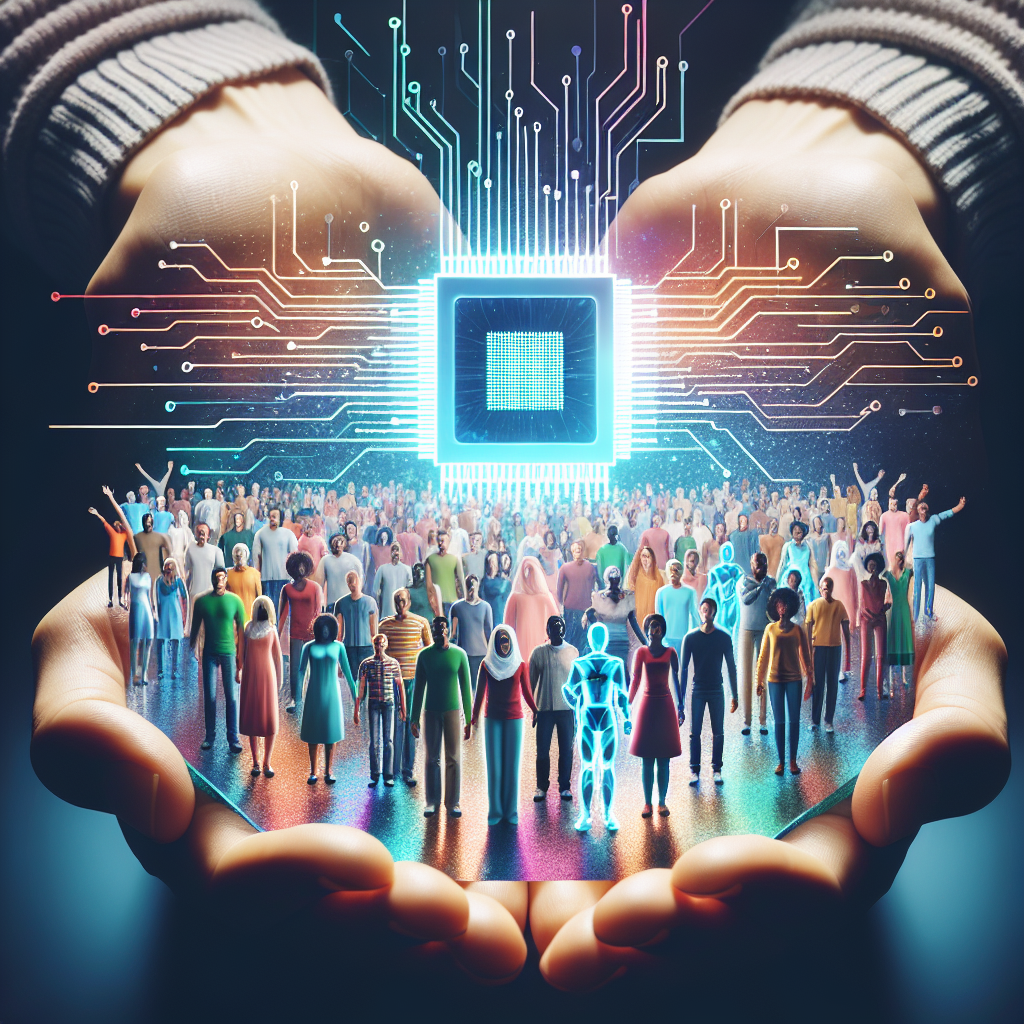The democratization of AI: What it means for society
Artificial intelligence, or AI, has been a rapidly evolving field in recent years. From self-driving cars to virtual assistants, AI has become increasingly integrated into our daily lives. However, the use of AI has been primarily limited to large corporations and research institutions due to the high cost and specialized expertise required to develop AI systems.
The democratization of AI refers to the movement towards making AI more accessible to a wider range of people and organizations. This involves lowering the barriers to entry for developing and implementing AI systems, making it easier for individuals and smaller businesses to take advantage of AI technology. The democratization of AI has the potential to have a significant impact on society in a number of ways.
One of the key benefits of the democratization of AI is the potential for increased innovation. By making AI more accessible, a greater number of people will have the opportunity to experiment with AI technology and develop new applications. This could lead to the creation of novel solutions to a wide range of problems, from healthcare to transportation to education. The democratization of AI has the potential to drive a new wave of innovation and creativity in a wide range of industries.
Another potential benefit of the democratization of AI is increased efficiency and productivity. AI has the potential to automate repetitive tasks, freeing up human workers to focus on more complex and creative work. By making AI more accessible, businesses of all sizes will be able to take advantage of these efficiencies, leading to increased productivity and potentially lower costs. This could lead to a more competitive marketplace and increased economic growth.
The democratization of AI also has the potential to democratize access to information and services. AI-powered systems have the ability to analyze and interpret vast amounts of data, providing insights and recommendations that can help individuals make better decisions. By making AI more accessible, more people will have access to these capabilities, potentially leveling the playing field and reducing inequalities in access to information and services.
However, the democratization of AI also raises a number of important questions and concerns. One of the key concerns is the potential for bias in AI systems. AI systems are only as good as the data they are trained on, and if that data is biased, the AI system will also be biased. This could lead to discrimination and unfair treatment of certain groups of people. Ensuring that AI systems are fair and unbiased will be a key challenge as AI becomes more widespread.
Another concern is the potential impact of AI on the job market. As AI systems become more capable, there is the potential for them to replace human workers in a wide range of industries. This could lead to job losses and economic disruption, particularly for workers in low-skilled and routine occupations. Ensuring that the benefits of AI are shared equitably across society will be a key challenge as AI becomes more widespread.
Overall, the democratization of AI has the potential to have a significant impact on society in a number of ways. By making AI more accessible, we have the opportunity to drive innovation, increase efficiency, and democratize access to information and services. However, there are also important challenges and concerns that need to be addressed as AI becomes more widespread. Ensuring that AI systems are fair and unbiased, and that the benefits of AI are shared equitably across society, will be key challenges in the coming years.
FAQs:
Q: What are some examples of how AI is being democratized?
A: There are a number of ways in which AI is being democratized. For example, there are now a wide range of tools and platforms that make it easier for individuals and businesses to develop and implement AI systems. These tools often abstract away the complexity of AI development, making it more accessible to a wider range of people. Additionally, there are now a number of online courses and training programs that teach people how to develop AI systems, further lowering the barriers to entry.
Q: How can businesses benefit from the democratization of AI?
A: Businesses can benefit from the democratization of AI in a number of ways. For example, AI systems have the potential to automate repetitive tasks, freeing up human workers to focus on more complex and creative work. This can lead to increased productivity and potentially lower costs. Additionally, AI systems can provide insights and recommendations that can help businesses make better decisions, leading to improved performance and competitive advantage.
Q: What are some of the key challenges of the democratization of AI?
A: One of the key challenges of the democratization of AI is ensuring that AI systems are fair and unbiased. AI systems are only as good as the data they are trained on, and if that data is biased, the AI system will also be biased. This could lead to discrimination and unfair treatment of certain groups of people. Additionally, there is the potential for AI to disrupt the job market, leading to job losses and economic disruption. Ensuring that the benefits of AI are shared equitably across society will be a key challenge as AI becomes more widespread.

